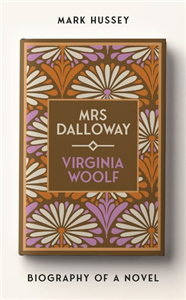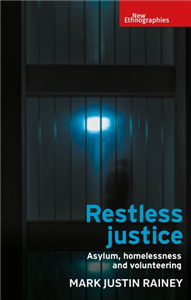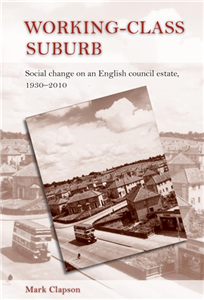Your Search Results
-
Promoted ContentHumanities & Social SciencesJuly 2018
Syria and the chemical weapons taboo
Exploiting the forbidden
by Michelle Bentley
This book analyses the Syria crisis and the role of chemical weapons in relation to US foreign policy. The Syrian government's use of such weapons and their subsequent elimination has dominated the US response to the conflict, where these are viewed as particularly horrific arms - a repulsion known as the chemical taboo. On the surface, this would seem to be an appropriate reaction: these are nasty weapons and eradicating them would ostensibly comprise a 'good' move. But this book reveals two new aspects of the taboo that challenge this prevailing view. First, actors use the taboo strategically to advance their own self-interested policy objectives. Second, that applying the taboo to Syria has actually exacerbated the crisis. As such, this book not only provides a timely analysis of Syria, but also a major and original rethink of the chemical taboo, as well as international norms more widely.
-
Promoted ContentBiography & True StoriesMay 2025
Mrs Dalloway
Biography of a novel
by Mark Hussey
A compelling biography of one of the most celebrated novels in the English language. The fourth and best-known of Virginia Woolf's novels, Mrs Dalloway is a modernist masterpiece that has remained popular since its publication in 1925. Its dual narratives follow a day in the life of wealthy housewife Clarissa Dalloway and shell-shocked war veteran Septimus Warren Smith, capturing their inner worlds with a vividness that has rarely been equalled. Mrs Dalloway: Biography of a novel offers new readers a lively introduction to this enduring classic, while providing Woolf lovers with a wealth of information about the novel's writing, publication and reception. It follows Woolf's process from the first stirrings in her diary through her struggles to create what was quickly recognised as a major advance in prose fiction. It then traces the novel's remarkable legacy to the present day. Woolf wrote in her diary that she wanted her novel 'to give life & death, sanity & insanity. to criticise the social system, & to show it at work, at its most intense.' Mrs Dalloway: Biography of a novel reveals how she achieved this ambition, creating a book that will be read by generations to come.
-
 Trusted Partner
Humanities & Social SciencesNovember 2024
Trusted Partner
Humanities & Social SciencesNovember 2024Culture is bad for you
by Orian Brook, Dave O'Brien, Mark Taylor
-
 Trusted Partner
Humanities & Social SciencesNovember 2009
Trusted Partner
Humanities & Social SciencesNovember 2009The Northern veto
by Mark Sandford
This book provides the only available historical account and comprehensive assessment of the factors surrounding the 2004 referendum on an elected assembly in the North-East region of England. The referendum delivered a 'no' vote of considerable magnitude and called a halt to the programme of gradual reform being pushed through by the Labour government. This book examines the campaigns around and the lead-up to the referendum, and offers in-depth analysis of the result, plus explorations of future options available to policy-makers around the sub-national governance of England (a key aspect of the 'English Question'). Crucially, the book contains chapters from scholars who carried out cutting-edge research at the time of the referendum and are thus in a unique position to contribute authoritatively to the historical understanding of these events. This volume will be of great benefit to students and researchers in Regional Studies, Local Government Studies and Constitutional Studies. ;
-
 Trusted Partner
Trusted Partner
-
 Trusted Partner
Trusted Partner
-
 Trusted Partner
Humanities & Social SciencesAugust 2002
Trusted Partner
Humanities & Social SciencesAugust 2002The rise of the Nazis
by Conan Fischer, Mark Greengrass
How and why did the Nazis seize power in Germany? Nearly seventy years on, the question remains heated and important discoveries continue to challenge long standing assumptions. Beginmning with an overview of the historical context within which Nazism grew, looking at the foreign relations, politics and society of Weimar and in particular at the role of the elites in the rise of Nazism. The book questions the anatomy of Nazism itself: What lent Nazi ideology its coherence and credibility? What distinguished the Nazi's programme from their competitors' and how did they project it so effectively? How was Hitler able to put together and fund an organisation so quickly and effectively that it could launch a sustained assault on Weimar? Who supported the Nazis and what were their motives? Where, precisely, does Nazism belong in the history of Europe?. Since the publication of the first edition, important new works have appeared and this new scholarship has been incorporated into the text. ;
-
 Trusted Partner
Humanities & Social SciencesAugust 2016
Trusted Partner
Humanities & Social SciencesAugust 2016Syria and the chemical weapons taboo
by Michelle Bentley, Emmanuel Pierre Guittet, Peter Lawler
-
 Trusted Partner
Business, Economics & LawOctober 2004
Trusted Partner
Business, Economics & LawOctober 2004Qualities of food
by Mark Harvey, Andrew McMeekin, Alan Warde
In this book, the complexity and the significance of the foods we eat are analysed from a variety of perspectives, by sociologists, economists, geographers and anthropologists. Chapters address a number of intriguing questions: how do people make judgments about taste? How do such judgments come to be shared by groups of people?; what social and organisational processes result in foods being certified as of decent or proper quality? How has dissatisfaction with the food system been expressed? What alternatives are thought to be possible? The multi-disciplinary analysis of this book explores many different answers to such questions. The first part of the book focuses on theoretical and conceptual issues, the second part considers processes of formal and informal regulation, while the third part examines social and political responses to industrialised food production and mass consumption. Qualities of food will be of interest to researchers and students in all the social science disciplines that are concerned with food, whether marketing, sociology, cultural studies, anthropology, human nutrition or economics.
-
 Trusted Partner
Literature & Literary StudiesDecember 2006
Trusted Partner
Literature & Literary StudiesDecember 2006The sense of early modern writing
by Mark Robson, Rebecca Mortimer
-
 Trusted Partner
Humanities & Social SciencesAugust 1999
Trusted Partner
Humanities & Social SciencesAugust 1999British Politics in an Age of Reform
by Michael J. Turner, Mark Greengrass
This work is a detailed examination of principal themes in the political history of late 18th- and early 19th-century Britain. It evaluates much recent research, links the politics of the elite with the politics of the people and seeks to explain significant developments with reference to both their long- and short-term causes. Among the issues addressed are the relative powers of crown, cabinet and parliament between 1760 and 1832; the impact on domestic politics of revolution and war abroad; the growth of radicalism and popular political activity; agitation for reform and the responses of government; the rise of party; the connections between extra-parliamentary pressure and instability; at the centre of power. ;
-
 Trusted Partner
Trusted Partner
-
 Trusted Partner
Business, Economics & LawJuly 2018
Trusted Partner
Business, Economics & LawJuly 2018Market relations and the competitive process
by Stan Metcalfe, Stan Metcalfe, Alan Warde, Mark Harvey
-
 Trusted Partner
Business, Economics & LawAugust 2010
Trusted Partner
Business, Economics & LawAugust 2010Markets, rules and institutions of exchange
None
by Stan Metcalfe, Mark Harvey, Mark Harvey
This book is about how to understand the huge variety of markets and market organisation in contemporary economies through a dialogue between a group of UK and French scholars. It presents a critique and development of institutional views of markets, and 'puts markets in their place' in a wider political and social context. In the wake of the 2008 financial crisis in markets, the book makes a topical and significant contribution on the importance of the rules and regulations that constitute markets, and their broader political and legal frameworks. Moreover, the disruption of markets brings to the fore their interconnection with the broader economy, with production, distribution and consumption in a way often ignored at the height of market bubbles. Both theoretical and empirical, a wide range of markets are considered, capital markets for new technology and venture capital, for food, domestic services and scientific knowledge. The authors address how markets emerge and disappear, or indeed why they fail to appear, as well has how they become stable and institutionalised. ;
-
 Trusted Partner
Business, Economics & LawJuly 2018
Trusted Partner
Business, Economics & LawJuly 2018Qualities of food
by Mark Harvey, Stan Metcalfe, Andrew McMeekin, Mark Harvey, Alan Warde
In this book, the complexity and the significance of the foods we eat are analysed from a variety of perspectives, by sociologists, economists, geographers and anthropologists. Chapters address a number of intriguing questions: how do people make judgments about taste? How do such judgments come to be shared by groups of people?; what social and organisational processes result in foods being certified as of decent or proper quality? How has dissatisfaction with the food system been expressed? What alternatives are thought to be possible? The multi-disciplinary analysis of this book explores many different answers to such questions. The first part of the book focuses on theoretical and conceptual issues, the second part considers processes of formal and informal regulation, while the third part examines social and political responses to industrialised food production and mass consumption. Qualities of food will be of interest to researchers and students in all the social science disciplines that are concerned with food, whether marketing, sociology, cultural studies, anthropology, human nutrition or economics.
-
 Trusted Partner
Political partiesNovember 2014
Trusted Partner
Political partiesNovember 2014The Conservative Party and the extreme right 1945–1975
by Mark Pitchford
This book, newly available in paperback, reveals the Conservative Party's relationship with the extreme right between 1945 and 1975. For the first time, this book shows how the Conservative Party, realising that its well known pre-Second World War connections with the extreme right were now embarrassing, used its bureaucracy to implement a policy of investigating extreme right groups and taking action to minimise their chances of success. The book focuses on the Conservative Party's investigation of right-wing groups, and shows how its perception of their nature determined the party bureaucracy's response. The book draws a comparison between the Conservative Party machine's negative attitude towards the extreme right and its support for progressive groups. It concludes that the Conservative Party acted as a persistent block to the external extreme right in a number of ways, and that the Party bureaucracy persistently denied the extreme right within the party assistance access to funds and representation within party organisations. It reaches a climax with the formulation of a 'plan' threatening its own candidate if he failed to remove the extreme right from the Conservative Monday Club.
-
 Trusted Partner
Humanities & Social SciencesJanuary 2026
Trusted Partner
Humanities & Social SciencesJanuary 2026The tragedy of the border
Asylum, destitution and homelessness
by Mark Rainey
Amid the global migration crisis, the UK has created and increasingly hostile policy environment for asylum seekers that has pushed many into unnecessary hardship and homelessness. This volume is an ethnographic study alongside refused asylum seekers and refugees living destitute in Manchester, UK. Based on over three years of research in emergency night shelters and on the streets of the city, it draws on the stories and experiences of those who have been driven into destitution by an antagonistic immigration system. The book not only explores how legal and temporal uncertainty shapes the daily lives of those who have had their asylum claims refused, but also attends to the experiences of volunteers and activists working on the frontline of the crisis. While the work is rich in detail, it also extends outwards and offers new insights into our understanding of borders and the need to rethink the grand notions of justice and hospitality.
-
 Trusted Partner
Humanities & Social SciencesJanuary 2025
Trusted Partner
Humanities & Social SciencesJanuary 2025The four dimensions of power
Understanding domination, empowerment and democracy
by Mark Haugaard
In this accessible and sophisticated exploration of the nature and workings of social and political power, Haugaard examines the interrelation between domination and empowerment. Building upon the perspectives of Steven Lukes, Michel Foucault, Amy Allen, Hannah Arendt, Anthony Giddens, Pierre Bourdieu and others, he offers a clear theoretical framework, delineating power in four interrelated dimensions. The first and second dimensions of power entail two different types of social conflict. The third dimension concerns tacit knowledge, uses of truth and reification. Drawing upon genealogical theory and accounts of slavery as social death, the fourth dimension of power concerns the power to create social subjects. The book concludes with an original normative pragmatist power-based account of democracy. Offering lucid and entertaining illustrations of complex theoretical perspectives, this book is essential reading for scholars and activists.
-
 Trusted Partner
Humanities & Social SciencesFebruary 2012
Trusted Partner
Humanities & Social SciencesFebruary 2012Working–class suburb
Social change on an English council estate, 1930–2010
by Mark Clapson
Not all council estates are the same. A detailed historical account of the birth and social evolution of the Whitley council estate in Reading, Working-Class Suburb challenges many of the more depressing images and cultural stereotypes about council housing in twentieth and twenty-first century England. Key areas covered by the study are housing and politics; community campaigns; women and the corporate life of council estates; the uses of leisure; the relationships between tenants, residents and the local authority, and continuities in working-class life despite economic, demographic and political change. The book will be of interest to anyone studying urban history and social history, to professionals working in the fields of housing policy and housing studies, and to the growing number of academics interested in suburban studies. ;
-
 Trusted Partner
Trusted Partner

























